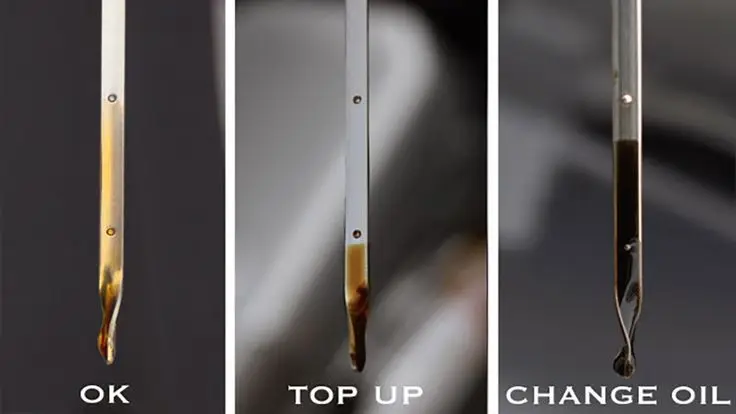Keeping your car running smoothly requires regular maintenance, and one of the most crucial maintenance tasks is changing your engine oil. This simple service helps protect your engine from damage and keeps it performing at its best. Regular oil changes are a simple and cost-effective way to extend the life of your engine and avoid expensive repairs down the road.

Over time, engine oil breaks down and becomes less effective at lubricating your engine’s moving parts. It also collects dirt, particles, and other contaminants that can cause wear and damage if not removed. Fresh oil helps your engine run cooler, cleaner, and more efficiently, which can even improve your vehicle’s fuel economy.
Key Takeaways
- Regular oil changes help maintain engine performance and prevent costly repairs.
- Engine oil degrades over time, becoming less effective at lubrication and temperature regulation.
- Ignoring recommended oil change intervals can significantly reduce your vehicle’s lifespan.
What Are Oil Changes?

Oil changes are a crucial maintenance task that keeps your vehicle’s engine running smoothly and extends its lifespan. They involve removing old engine oil and replacing it with fresh oil to ensure proper lubrication and performance.
Definition And Purpose
An oil change is the process of draining old, dirty engine oil from a vehicle and replacing it with new, clean oil. The primary purpose is to maintain proper engine lubrication by removing contaminants that accumulate during normal operation.
Engine oil serves as a lubricant between moving metal parts, reducing friction and preventing wear. Without adequate lubrication, engine components would quickly wear down and eventually fail.
Oil also helps cool the engine by carrying heat away from critical components. As oil ages, it breaks down and loses its effectiveness at both lubricating and cooling.
Regular oil changes improve engine performance, extend engine life, and help maintain fuel efficiency. Most vehicle manufacturers recommend changing oil every 3,000-10,000 miles, depending on driving conditions and the type of oil used.
Types Of Engine Oil
There are four main types of engine oil available for vehicles:
Conventional Oil: Made from refined crude oil. It’s the most basic and affordable option but requires more frequent changes.
Synthetic Oil: Chemically engineered for superior performance. It offers better protection in extreme temperatures and lasts longer than conventional oil.
Synthetic Blend: A mix of conventional and synthetic oils that provides enhanced protection at a mid-range price point.
High-Mileage Oil: Specially formulated for vehicles with over 75,000 miles, containing additives that help reduce oil consumption and prevent leaks.
Each oil type is rated with a viscosity grade (like 5W-30) indicating how it flows at different temperatures. The right choice depends on your vehicle’s specifications, driving conditions, and climate.
Responsibilities In Oil Service
A complete oil service involves more than just replacing the oil. Technicians perform several important tasks during this maintenance:
First, they drain the old oil and replace the oil filter, which traps contaminants and prevents them from circulating through the engine. A clean filter is essential for effective engine protection.
Technicians also inspect for oil leaks around gaskets and seals. They check oil levels after refilling to ensure proper volume according to manufacturer specifications.
Many service providers perform additional maintenance checks during an oil change, including:
- Tire pressure inspection
- Fluid level checks (brake, transmission, coolant)
- Air filter examination
- Battery testing
Vehicle owners should keep records of oil changes and follow manufacturer-recommended service intervals to maintain warranty coverage and extend engine life.
Why Regular Oil Changes Matter

Regular oil changes are among the most essential aspects of vehicle maintenance. They directly impact how well your engine runs, how long it lasts, and how efficiently your vehicle uses fuel.
Engine Performance Benefits
Regular oil changes help maintain optimal engine performance by providing proper lubrication to all moving parts. Fresh oil improves your engine’s performance and helps your car achieve better gas mileage. When engine oil becomes old and dirty, it thickens and creates more resistance, forcing the engine to work harder.
This increased effort leads to reduced fuel efficiency and sluggish performance. Studies show vehicles with clean oil can see up to a 2% improvement in fuel economy compared to those with dirty oil.
Modern engines with tight tolerances are particularly sensitive to oil quality. They require clean oil to maintain peak power output and responsiveness. The difference between fresh oil and oil that’s 5,000 miles old can be noticeable in how your vehicle accelerates and responds to throttle inputs.
Protection Against Engine Wear
Oil serves as a critical barrier between metal components that would otherwise rub against each other and cause damage. Regular oil changes extend engine life by ensuring this protective layer remains effective.
As oil ages, its viscosity breaks down and its protective qualities diminish. This breakdown accelerates wear on crucial engine components such as:
- Pistons and cylinder walls
- Valves and valve guides
- Crankshaft and bearings
- Timing chain or belt components
Engine oil degrades from heat and pressure over time, becoming less effective at protecting these parts. Fresh oil contains active additives that help neutralize acids, prevent corrosion, and maintain proper viscosity across different temperatures.
Without regular changes, these protective qualities diminish, potentially leading to expensive repairs that could have been avoided.
Reduction Of Engine Deposits
Over time, oil breaks down and collects contaminants, forming sludge and deposits throughout the engine. Regular oil changes remove harmful particles that accumulate during normal operation.
These contaminants include:
- Dirt and dust particles that enter through the air intake
- Metal shavings from normal engine wear
- By-products of combustion like carbon and acids
- Moisture that accumulates in the oil
Without regular changes, these particles circulate through your engine, causing abrasive damage and forming deposits that can block oil passages. This restriction of oil flow can lead to increased engine temperatures and accelerated wear.
Changing your engine oil regularly is a simple, cost-effective maintenance step that prevents these harmful deposits from building up in critical engine areas.
How Oil Changes Improve Vehicle Longevity

Regular oil changes are one of the most crucial maintenance tasks for extending your vehicle’s life. Fresh oil protects your engine components from damage while improving overall performance and efficiency.
Preventative Maintenance And Lifespan
Engine oil serves as the lifeblood of your vehicle’s engine. It lubricates moving parts, reducing friction that causes wear and tear on critical components. Over time, oil breaks down and becomes contaminated with dirt, metal particles, and sludge.
Regular oil changes protect your car’s engine from premature damage. Most experts recommend changing oil every 3,000-7,500 miles, depending on your vehicle and driving conditions.
Fresh oil effectively carries heat away from engine components, preventing overheating and thermal breakdown. This cooling function is essential for maintaining engine integrity over time.
Vehicles that receive consistent oil service typically last significantly longer. Some studies show engines can last 200,000+ miles with proper maintenance, while neglected engines may fail before 100,000 miles.
Clean oil also improves fuel economy, as engines run more efficiently when properly lubricated. This saves money while extending your vehicle’s useful life.
Preserving Manufacturer Warranty
Most vehicle warranties require owners to perform regular maintenance, including oil changes, at specified intervals. Failing to change your oil can void these valuable protections.
Manufacturers specify oil change intervals because they understand the direct connection between regular oil service and vehicle longevity. These recommendations are based on extensive testing and engineering knowledge.
Documentation matters. Keep detailed records of all oil changes, including:
- Date of service
- Mileage at time of service
- Type of oil used
- Service location
Many warranties specifically exclude coverage for damage caused by improper maintenance. If you can’t prove regular oil changes, repair claims might be denied.
Some newer vehicles have oil monitoring systems that alert you when service is needed. Always follow these indicators to maintain warranty coverage and maximize your vehicle’s lifespan.
Recommended Frequency For Oil Changes

Oil change intervals depend on several key factors including vehicle type, oil quality, and how you drive. Getting this timing right helps your engine last longer and run better.
Manufacturer Guidelines
Most car manufacturers recommend changing your oil every 5,000 to 7,500 miles for conventional driving conditions. Newer vehicles with synthetic oil can sometimes go 5,000 to 15,000 miles between changes.
Different engines have different needs. For example, some turbocharged engines require more frequent service – the 1.6 turbo might need changes every 3,000 miles under severe conditions.
Most experts recommend checking your oil level at least once a month, regardless of your change interval. This simple habit helps catch potential problems before they cause damage.
Impact Of Driving Conditions
Severe driving conditions require more frequent oil changes than normal driving. These conditions include:
- Frequent short trips (less than 5 miles)
- Stop-and-go traffic
- Extreme temperatures (very hot or cold)
- Driving on dusty or unpaved roads
- Towing or hauling heavy loads
Under these conditions, the severe schedule might recommend changes every 3,000-3,750 miles, about half the normal interval.
City drivers who make many short trips should consider more frequent changes. The engine doesn’t reach optimal temperature on short drives, allowing moisture and contaminants to build up faster in the oil.
Consulting The Owner’s Manual
The vehicle’s owner’s manual provides the most accurate oil change recommendations for each specific model. This information is typically found in the maintenance section.
The manual will list both normal and severe service intervals based on the vehicle’s design. These guidelines take into account the engine design, oil requirements, and normal operating conditions.
Many newer vehicles include an oil life monitoring system that calculates when an oil change is needed based on actual driving conditions. These systems track mileage, engine revolutions, temperature cycles, and other factors.
When in doubt, the owner’s manual provides the definitive answer on oil change frequency. Following these recommendations helps maintain warranty coverage and ensures proper engine protection.
Signs Your Vehicle Needs An Oil Change

Regular oil changes are crucial for your vehicle’s health, but knowing when it’s time can be challenging. Your car will usually provide several key indicators that fresh oil is needed.
Dashboard Warning Lights
Modern vehicles are equipped with sophisticated monitoring systems that alert drivers when maintenance is required. The most obvious indicator is the oil change light on your dashboard. This light typically resembles an oil can or may appear as a maintenance reminder.
Many newer cars have specific oil monitoring systems that calculate when an oil change is needed based on driving habits and conditions. These systems track mileage, engine revolutions, and operating temperatures.
The check engine light might also illuminate if oil-related issues are affecting engine performance. This warning should never be ignored as it could indicate serious problems.
When any warning light appears, it’s best to consult your owner’s manual to understand its meaning. Prompt attention to these dashboard alerts helps prevent costly repairs later.
Unusual Engine Noises
Engine oil lubricates moving parts to reduce friction. When oil becomes dirty or depleted, these parts may create distinctive sounds.
Knocking or ticking noises coming from the engine often signal inadequate lubrication. These sounds typically increase when accelerating or when the engine is under strain.
Other concerning sounds include grinding or rumbling, which might indicate that metal components are making direct contact due to insufficient oil. The engine may run louder than usual or produce a rattling sound during operation.
Some drivers notice increased vibration throughout the vehicle. This occurs because worn-out oil cannot properly cushion engine components.
If the engine sounds different than normal, particularly after starting or during acceleration, it’s wise to check the oil level and condition immediately. Unusual noises should never be ignored as they can signal impending damage.
Dirty Or Low Engine Oil
Checking your engine oil regularly provides direct evidence of its condition. Pull the dipstick, wipe it clean, reinsert it, and check again for accurate results.
Fresh engine oil has a clear amber or light brown color. If your oil appears very dark or has a gritty texture, it’s time for a change. Dark oil indicates contamination with dirt, debris, and engine byproducts.
Oil level is equally important. Low levels on the dipstick mean your engine isn’t getting proper lubrication. This could result from leaks or oil consumption issues.
Another telling sign is burnt-smelling oil. This odor indicates overheating or contamination. Some drivers might notice a burning smell while driving if oil is leaking onto hot engine parts.
The texture of the oil matters too. Rub a small amount between your fingers—if it feels gritty rather than smooth, contaminants are present and the oil needs replacement.
Consequences Of Skipping Oil Changes

Neglecting regular oil changes leads to serious problems for your vehicle. Fresh oil provides essential lubrication and protection that deteriorates over time, creating a cascade of issues that affect both engine health and performance.
Risk Of Engine Damage
When you skip oil changes, old oil breaks down and transforms into a thick, harmful sludge. This sludge clogs vital engine components and prevents proper lubrication of moving parts.
Without adequate lubrication, metal parts begin to grind against each other, creating excessive friction and heat. This leads to accelerated wear on pistons, cylinders, and bearings.
The buildup in the oil pan can eventually destroy the oil pump. When this happens, oil circulation fails completely, often resulting in catastrophic engine failure.
Engine components like valves and timing chains also suffer from inadequate lubrication. Repair costs for these issues typically range from hundreds to thousands of dollars—far more expensive than routine oil changes.
Loss Of Vehicle Efficiency
Dirty oil makes the engine work harder to perform normal operations. This extra effort directly impacts fuel economy, causing the vehicle to use more gas for the same distance traveled.
As old oil circulates, it carries contaminants and particles throughout the engine. These impurities create resistance and reduce overall engine performance.
Vehicles with neglected oil changes often experience:
- Decreased horsepower
- Rough idling
- Sluggish acceleration
- Increased fuel consumption by up to 1-2%
Harmful emissions also increase when oil isn’t changed regularly. The engine produces more pollutants, potentially causing the vehicle to fail emissions tests.
Heat management becomes less effective with degraded oil, forcing cooling systems to work harder and potentially leading to overheating issues.
Choosing The Right Oil And Service

Making informed decisions about your engine oil and service provider directly impacts your vehicle’s performance and longevity. The right choices will extend engine life and improve fuel efficiency while saving you money in the long run.
Selecting The Ideal Engine Oil
Vehicle manufacturers design engines with specific oil requirements that are listed in your owner’s manual. Engine oil comes in different viscosity grades (like 5W-30 or 10W-40) that determine how it flows at various temperatures.
Climate plays a crucial role in selection. Colder regions benefit from lower viscosity oils that flow better at low temperatures, while hotter climates may require thicker oils.
Consider your driving habits when choosing oil. Synthetic oils cost more but offer better performance and protection for high-mileage vehicles, performance cars, or stop-and-go driving conditions.
Modern engines often require specific oil formulations with additives that help clean deposits and improve fuel efficiency. Using the wrong type can reduce engine performance and potentially void your warranty.
Trustworthy Oil Service Providers
Dealership service centers have manufacturer-trained technicians with access to the latest technical information. They typically use factory-recommended parts and fluids but may charge premium prices for this expertise.
Independent repair shops often provide quality service at lower costs. Look for ASE-certified technicians and shops with positive customer reviews and transparent pricing.
Quick-lube chains offer convenience with no-appointment services and faster turnaround times. These are good options for basic oil service needs but may not be suitable for complex issues.
When evaluating providers, check if they:
- Use quality filters and the correct oil specification
- Offer comprehensive inspections with oil changes
- Provide detailed records of service
- Have warranties on their work
Avoid shops that push unnecessary services or use generic oils that don’t meet manufacturer specifications. A trustworthy provider will explain recommendations clearly without pressure tactics.
Conclusion

Regular oil changes are one of the simplest yet most important maintenance tasks for your vehicle. By extending engine life through reduced wear and tear, you protect your investment for years to come.
Fresh oil maintains engine performance by properly lubricating moving parts and reducing harmful friction. This helps your car run smoothly and efficiently during daily driving.
Oil changes prevent sludge build-up that can damage your engine and lead to expensive repairs. Clean oil carries away contaminants that would otherwise cause corrosion and reduce engine efficiency.
Key benefits of regular oil changes:
- Improved fuel economy
- Reduced emissions
- Enhanced engine protection
- Lower repair costs over time
Following the manufacturer’s recommended oil change schedule is crucial. Most modern vehicles require changes every 5,000-7,500 miles, though this varies by model and driving conditions.
Remember that regular maintenance like oil changes represents a small investment compared to the cost of major engine repairs. Protecting your vehicle with this simple service helps ensure reliable transportation for years to come.
Frequently Asked Questions

Regular oil changes protect your vehicle’s engine while improving performance and fuel efficiency. Proper maintenance prevents costly repairs and extends engine life, making this simple service one of the most important aspects of car care.
What are the key benefits of changing my car’s oil filter regularly?
Changing the oil filter regularly prevents dirt and debris from circulating through the engine. This protection keeps engine components clean and reduces wear on moving parts.
The filter traps harmful particles that could otherwise cause abrasion and damage to sensitive engine components. Over time, these particles can accumulate and clog the filter.
A fresh oil filter ensures proper oil flow throughout the engine, maintaining optimal pressure. This consistent pressure helps all engine parts receive adequate lubrication, reducing friction and heat.
What are the signs that my vehicle is overdue for an oil change?
Dark, dirty oil is a primary indicator that an oil change is needed. Fresh oil has an amber color, while old oil becomes dark brown or black from contaminants.
The check engine light may illuminate when oil levels are low or the oil has degraded significantly. This warning should never be ignored as it could indicate serious engine issues.
Unusual engine noises such as knocking or ticking often suggest inadequate lubrication. These sounds occur when engine parts aren’t properly protected by clean oil.
How does changing the oil affect engine cooling and performance?
Clean oil helps absorb heat generated by the engine’s moving parts. This heat transfer is crucial for preventing overheating and maintaining optimal operating temperatures.
Fresh oil flows more efficiently through engine passages, allowing it to reach all components that require lubrication. This improved circulation enhances overall engine performance and responsiveness.
Engines with clean oil typically run more smoothly and efficiently. The proper viscosity of fresh oil reduces friction, allowing the engine to operate with less effort and use less fuel.
How crucial is it to adhere to the recommended oil change schedule?
Following the manufacturer’s recommended oil change intervals is extremely important for maintaining warranty coverage. Skipping scheduled maintenance could void the warranty on major engine components.
Modern vehicles often have oil life monitoring systems that calculate when an oil change is needed based on driving conditions. These systems provide more accurate recommendations than the old “3,000-mile rule.”
Severe driving conditions like stop-and-go traffic, extreme temperatures, or towing heavy loads may require more frequent oil changes. Drivers should adjust their maintenance schedule accordingly.
Can synthetic oil extend the interval between oil changes?
Synthetic oil typically allows for longer intervals between changes compared to conventional oil. Many manufacturers recommend 7,500-10,000 miles for synthetic oil versus 3,000-5,000 for conventional.
The superior stability of synthetic oil helps it resist breakdown from heat and pressure. This resistance to degradation means it maintains its protective qualities longer than conventional oils.
Despite the extended interval, checking oil levels regularly remains important. Even with synthetic oil, vehicles can experience leaks or consumption that requires attention.
What risks am I taking by delaying an oil change for my vehicle?
Delaying oil changes can lead to sludge formation in the engine. This thick, gel-like substance blocks oil passages and prevents proper lubrication, causing accelerated wear.
Engine components may suffer premature wear due to inadequate lubrication. Parts like bearings, pistons, and cylinder walls can be damaged when oil loses its protective properties.
The cost of repairing engine damage caused by neglected oil changes far exceeds the expense of regular maintenance. A complete engine rebuild or replacement can cost thousands of dollars compared to the modest price of an oil change.



